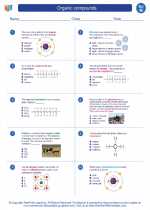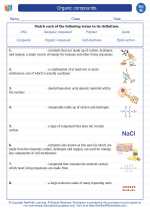Steroids
Steroids are a class of organic compounds that have a specific molecular structure consisting of four rings of carbon atoms. They are produced naturally in the body and can also be produced synthetically. Steroids have a wide range of biological functions, including regulating metabolism, immune function, inflammation, and salt and water balance.
Natural Steroids
The human body produces natural steroids such as cholesterol, estrogen, progesterone, and testosterone. These hormones play crucial roles in the body's growth, development, and reproductive functions.
Synthetic Steroids
Synthetic steroids, also known as corticosteroids, are often used as medications to treat a variety of conditions, including autoimmune diseases, asthma, and inflammatory disorders. Anabolic steroids, another type of synthetic steroids, are often misused by athletes and bodybuilders to enhance performance and muscle growth, which can lead to serious health consequences.
Study Guide
- Describe the molecular structure of steroids and how it differs from other organic compounds.
- Explain the biological functions of natural steroids in the human body.
- Discuss the medical uses of synthetic steroids and their potential side effects.
- Investigate the misuse of anabolic steroids and the impact on physical and mental health.
- Compare and contrast natural and synthetic steroids in terms of production, regulation, and effects on the body.
Understanding the role of steroids in the body and the potential risks associated with their use is crucial for making informed decisions about their medical or recreational use.
.◂Science Worksheets and Study Guides Eighth Grade. Organic compounds

 Worksheet/Answer key
Worksheet/Answer key
 Worksheet/Answer key
Worksheet/Answer key
 Worksheet/Answer key
Worksheet/Answer key
 Vocabulary/Answer key
Vocabulary/Answer key
 Vocabulary/Answer key
Vocabulary/Answer key
